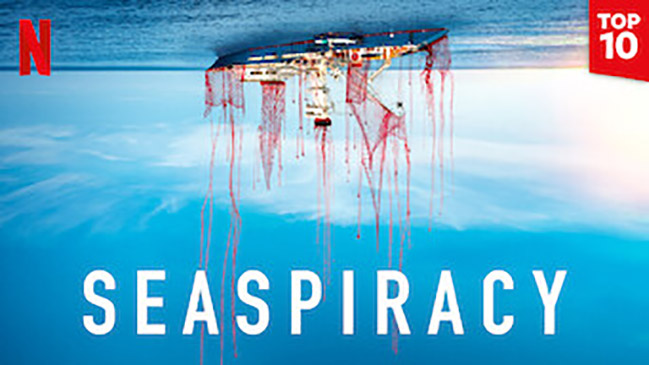
[dropcap]W[dropcap]hat began as another retelling of the “plastic in the ocean is bad” narrative, took a sharp turn towards a far darker, unexplored reason for the destruction of the marine ecosystem.
The latest addition to Netflix’s original documentaries, Seaspiracy sheds light on the decimating effects of commercial fishing.
Starting with the whaling industry, the storyline evolves as the true scale of destruction is uncovered. In the latter half of the project, human rights issues within the fishing industry are revealed.
The 90-minute documentary is not for the faint of heart. There are enough disturbing images to cause your stomach to churn, and turn your appetite away from seafood.
The audience is also subjected to infographics and statistics. One that stands out is the startling claim, that the planet could be facing “empty oceans” by the year 2048. Less than three decades from now. The lack of a marine population is a terrifying suggestion.
Since its debut in March, the documentary has harnessed an abundance of attention on social media, some of it for the wrong reasons.
Ali Tabrizi, the filmmaker and director behind Seaspiracy, should indeed be commended for his attempt to draw attention towards modern slave labour and the undiscussed environmental repercussions of commercial fishing.
However, this documentary has compromised his journalistic integrity.
It includes memorable, discoveries such as the untrustworthiness of “dolphin-safe tuna” labels, and the investigation into the Taiji dolphin hunt, the use of unauthorised interviews to further their narrative raises an ethical question.
An aspect of Seaspiracy that truly stands out is the inability of some interviewees to answer straightforward questions. As Tabrizi follows “the money”, it is uncovered that reputable organisations, whose mission is to promote environmental-well being, are hiding some of their actions and affiliations.
Individuals and organisations have criticised the documentary for its misrepresentation.
The Marine Stewardship Council (MSC), which is highly criticised in the film, made a statement on their website to address the claims. In response to the “misleading claims,” the MSC said, “We are not a commercial enterprise and we do not receive any income from fisheries or from the third-party certification of fisheries…The MSC is entirely transparent about its market-based funding model.”
Other organisations have also released statements about the film, such as the Plastic Pollution Coalition (PPC) who said the directors, “cherry-picked our comments to support their own narrative.”
Perhaps in his attempt to highlight the issue, Tabrizi has also interjected scare-mongering as a method to grasp peoples’ attention. This prompts the question of what environmental organisations are feeding us, and are we to be wary of Tabrizi’s claims, who are we to trust when the climate crisis is discussed?
The documentary ultimately succeeds in its intention: to shed light on this industry. If you watch it, do so objectively. With further curiosity and initiative, people can then come to their own conclusions.
Emma Costigan
Image Credit: Netflix



